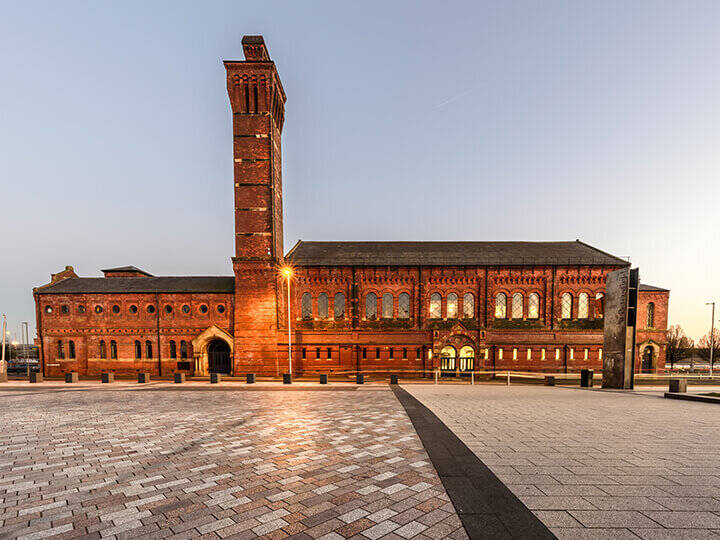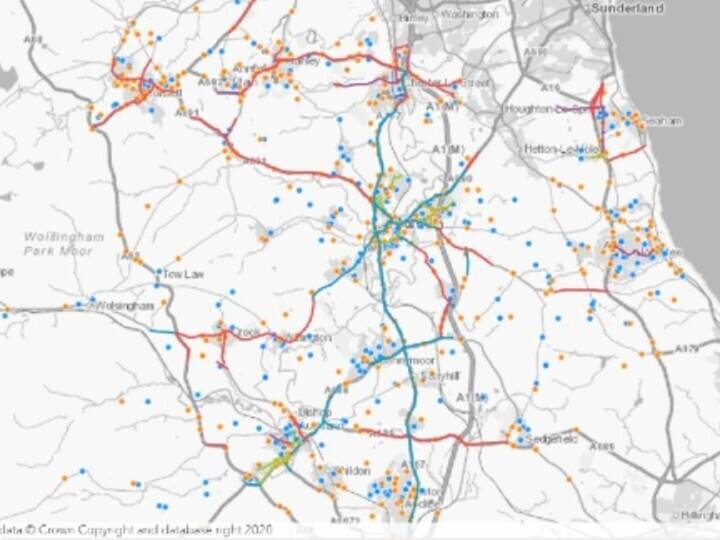Exemplar Award Winner- Winner NLPG NSG Exemplar Award ‘Naming Award’ 2010: Plymouth City Council
Most innovative example of street naming which is relevant to local history and geographical context
Street naming offers councils the opportunity to engage with the local community and provide recognition and remembrance of a local feature, historic event or personality. Plymouth City Council takes this responsibility very seriously.
Plymouth’s history dates back to the Bronze Age and the settlement grew rapidly, acting as an important trading post for the Roman Empire. In 1620, the Pilgrim Fathers departed from Plymouth for the New World and, throughout the Industrial Revolution, Plymouth grew, developing as a major shipping port while the neighbouring town of Devonport became an important Royal Naval shipbuilding and dockyard town. The conurbation of Plymouth encompasses the Three Towns of Plymouth, Stonehouse and Devonport. During WWI, it was the port of entry for many troops from around the empire and developed as a facility for the manufacture of munitions. Devonport was also an important base for escort vehicles and repair, and flying boats from Mount Batten.
RAF Mount Batten was a Royal Air Force station and base for flying boats that defended the south west coast of England. The station also became a base for high speed air sea rescue launches and employed Aircraftman Shaw, otherwise known as T. E. Lawrence or Lawrence of Arabia.
In WWII, Plymouth was an important embarkation point for US troops for the D-Day landing and the city was heavily bombed by the Luftwaffe in a series of 59 raids known as the Plymouth Blitz. One extreme period of action occurred shortly after a visit from HRH King George VI and Queen Elizabeth on March 20th 1941. In total, more than 12,000 devices were dropped and some of the worst casualties occurred at the City Hospital Maternity Ward which received a direct hit. Nineteen children died in the Maternity Ward that night together with six nurses.
The opportunity to recognise one of Plymouth’s most famous residents and to pay tribute to some of its fallen arose as a result of developments on the former sites of RAF Mount Batten and the City Hospital – latterly known as Freedom Fields.
Outcomes
The approved names of streets at the former sites of RAF Mount Batten and the City Hospital, and their original references are as follows:
• Lawrence Road – T.E. Lawrence (Lawrence of Arabia) was based at the former RAF station
• Shaw Road – Shaw was a nom de guerre of Lawrence
• Cunliffe Avenue – Professor Cunliffe, an archaeologist, made a study and wrote a book about Mt Batten
• Durwent Avenue – Durwent was the name of a boat built at Mount Batten
• Catalina Villas – Catalina a type of ‘flying boat’ serving with 119 Squadron based at RAF Mt Batten • Monica Walk – probationary nurse Monica White aged 17 years
• Lydia Way – nurse Lydia Rebecca Walters aged 16 years
• Emily Gardens – nurse Emily Helen Kelly aged 37 years
• Olivia Court – nurse Olivia May Willing aged 19 years.
Key benefits
- Plymouth City Council has provided a lasting tribute celebrating and commemorating the lives and deaths of just some of the city’s heroes and heroines of WWI and WWII
- Communication with individuals, resident’s forums, historical groups and other interested parties ensured selected names were appropriate, applicable and respectful
- The promotion of chosen names via local press generated a wide interest in and support of the Council’s process and decisions
- Inclusion of new streets within the LLPG / LSG ensures council department and third party contractors have access to the most up-to-date information to support decision making and service delivery
View from the authority
“Through liaison with local residents and other interested parties, Plymouth City Council has used the development of high profile brownfield sites to celebrate and honour heroes and heroines of the two World Wars. The names chosen provide reference to the former use of the sites, their residents and the price they paid during times of conflict. It is hoped that the chosen names will prompt reflection and provide a fitting tribute for future generations.”
-Jane Hirons, Senior Property and Terrier Officer, Plymouth City Council.



